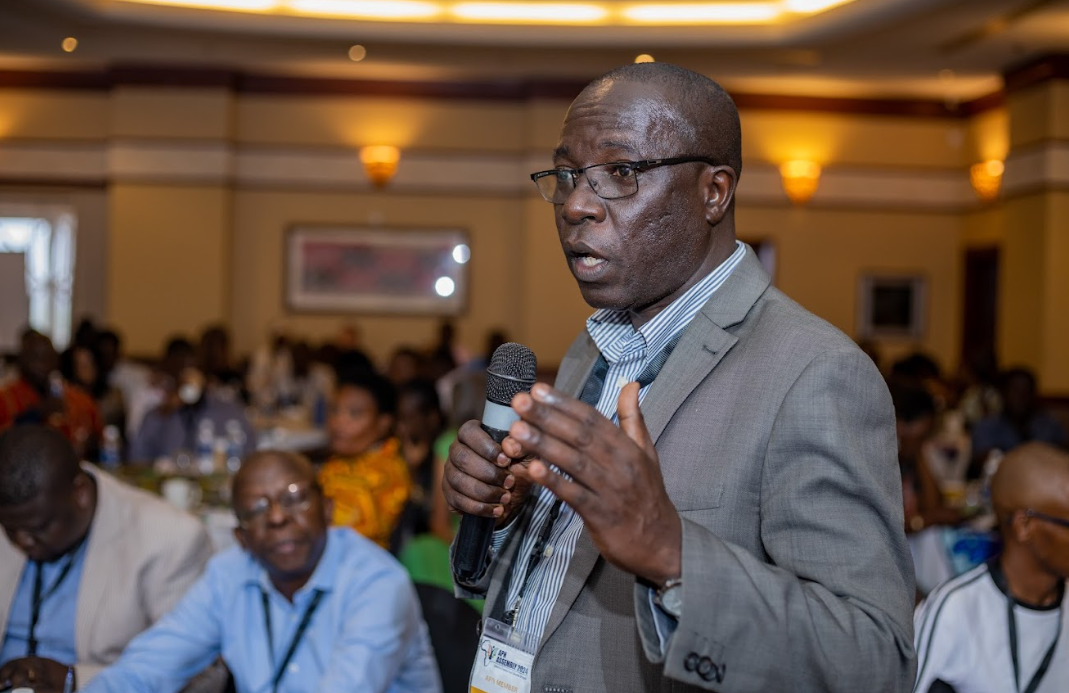
The Impact of Legislative Change on Civil Society in an Evolving Political Landscape in Africa.
A recent discussion on disability politics and inclusion at the 2024 Africa Philanthropy Network Assembly brought together leaders and advocates from civil society organizations (CSOs) to explore the pressing challenges facing the sector in Africa and propose actionable solutions. CSOs are increasingly navigating a complex and often restrictive political landscape, characterized by shifting legislation, heightened governmental scrutiny, and diminishing civic space. These challenges are further compounded by global trends such as terrorism financing and changing tax laws, all of which create obstacles for CSOs advocating for governance, democracy, and social change. Despite these difficulties, the philanthropic sector presents valuable opportunities for growth and collaboration, offering a powerful avenue for strengthening the role of civil society in driving development and social progress.
One of the key issues facing CSOs globally is the rapid evolution of legislation that directly impacts their ability to operate. In countries like Nigeria, changes to tax laws driven by government efforts to address national debt pose significant risks. If CSOs fail to engage actively in legislative discussions, they risk being subject to new taxes and regulations that could impede their operations. Proactive involvement is essential to ensure that CSOs can help shape policies on crucial issues like governance, elections, and public services.
The situation is similarly tense in countries like Zimbabwe, where laws such as the Private Voluntary Organizations (PVO) Bill have created an atmosphere of fear among CSOs. In Uganda, a complex legal framework involving over 17 pieces of legislation selectively enforced during politically sensitive periods has further constrained civil society. Similarly, in Kenya, political tensions and safety concerns have led to the postponement of important social movement gatherings.
As governments around the world increasingly view CSOs as potential threats when their actions conflict with national priorities, the need for collaboration becomes even more pressing. CSOs must ensure they focus on their core missions while aligning their efforts with national development objectives to maintain government support.
While shrinking civic spaces are most visible in regions like Africa, they are not confined to this continent. Countries like India have seen new policies, such as corporate social responsibility mandates, which have opened up substantial funding for social causes. Brazil’s Bolsa Família welfare fund also provides a model for how partnerships between governments and private organizations can strengthen social welfare programs.
However, despite these positive examples, many grassroots leaders still face challenges when working with international donors, who often question the capacity of local organizations. This is evident in South Sudan, where distrust between local civil society groups and international partners continues to hinder development efforts. This gap in trust underscores the need for better communication, mutual respect, and trust-building between local CSOs and their international counterparts.
Strengthening Civil Society Through Community-Led Initiatives
Philanthropy and civic engagement can be significantly strengthened through community-led initiatives that empower local leaders and youth. These efforts are essential in addressing the gaps in trust that hinder the growth and sustainability of civil society. However, the philanthropic sector itself must evolve to embrace equitable and trust-based partnerships, moving away from the “savior complex” often associated with large donors.
CSO leaders and advocates highlighted the importance of reconnecting with grassroots communities to strengthen the legitimacy of CSOs. Many organizations have become overly professionalized, creating a disconnect with the very communities they seek to serve. Without visible community support, CSOs risk being perceived as serving foreign agendas, which weakens their advocacy efforts.
The discussion also emphasized the importance of unified advocacy in counteracting governmental repression and promoting enabling environments for civil society. Key takeaways included:
- Ghana: The creation of a Civil Society Forum has provided a platform for addressing systemic challenges and enhancing collaboration among CSOs. The sector’s active participation in shaping the Non-Profit Organizations (NPO) Bill shows that CSOs can influence policy when they work together.
- Zimbabwe: The inability to register new organizations is stifling civic engagement, highlighting the need for reforms that allow for the establishment of trusts and other CSOs.
- Nigeria and Senegal: Lengthy and complex NGO registration processes have deterred new organizations, while restrictive tax regimes continue to create operational barriers for CSOs.
Through these discussions, it became clear that CSOs need to strengthen their internal practices and reflect on their role in the evolving civic landscape. Some organizations are forgoing international funding to avoid governmental scrutiny, opting instead to directly support grassroots empowerment. Balancing solidarity with safety remains a critical challenge, especially in contexts where governments often respond with violence or repression, as seen in Kenya’s response to protests.
The shift in governance dynamics requires CSOs to find new ways to navigate the challenges of advocacy and governance carefully. Digital tools have played a significant role in mobilizing people, but governments often respond with violent crackdowns, particularly targeting protest organizers. International funding, often viewed with suspicion by governments, can also complicate CSO operations.
However, governments and CSOs must collaborate to address issues like healthcare, education, and infrastructure. By aligning their efforts with national development goals, CSOs can ensure that their voices are heard and their work remains effective. The dialogue on disability politics and inclusion at the 2024 Africa Philanthropy Network Assembly underscored the need for collaboration and mutual respect between governments, CSOs, and philanthropic organizations.
Conclusion: Resilience, Solidarity, and Collective Action
The path forward for CSOs lies in resilience, solidarity, and a commitment to shared goals. As one participant aptly noted, “Broadening civic space requires an inward look as well as outward action.” Civil society organizations must engage proactively with governments, advocate for supportive legislative frameworks, and build stronger relationships with local communities. In doing so, they can create an enabling environment for civic engagement and ensure that their voices are heard in policy decisions that impact all sectors of society.



